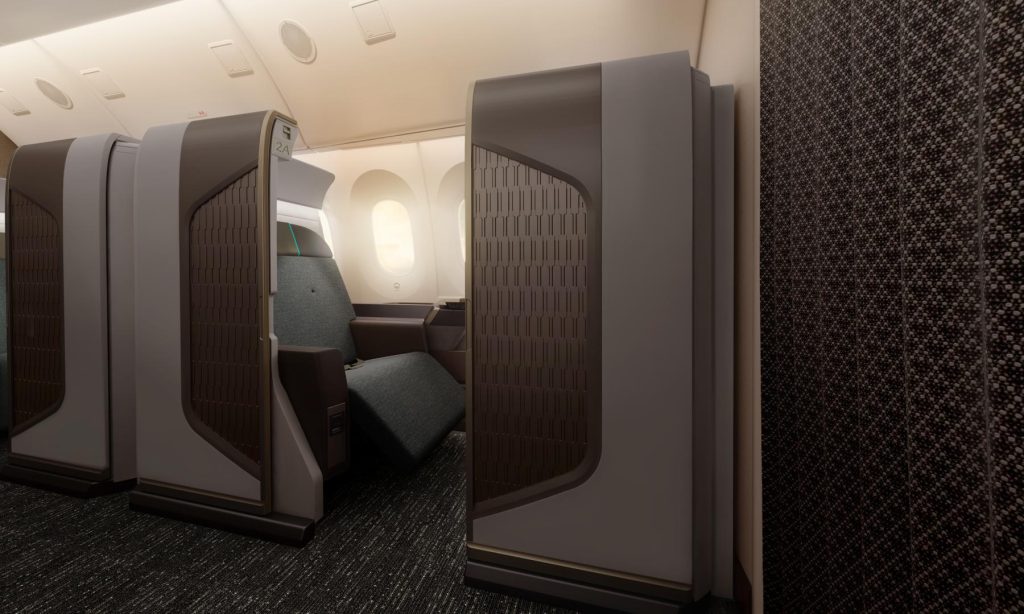Oman Air is the latest airline to retire its first-class cabin on specific routes, replacing it with a more affordable option called “Business Studio.” This new category will initially be available on flights to London and Bangkok, offering lie-flat seats and privacy walls. The decision to retire first class was made after careful analysis and benchmarking against industry standards, with the CEO stating that the traditional first-class experience has seen diminished demand. The airline aims to offer a higher tier of business class at a more competitive price point.
While Oman Air is transitioning away from first class, other Middle East carriers have had differing approaches to the service. Qatar Airways initially announced it would remove first-class from future long-haul flights, but later reversed that decision due to supply chain and certification issues. Emirates, on the other hand, still considers first class to be hugely important. Saudi Arabia’s upcoming carrier, Riyadh Air, has opted not to have a first-class cabin, with the CEO stating that first class for many airlines is not commercially sustainable and more of an egotistical charitable act.
Several international airlines have also withdrawn their first-class products in recent years, leading to fewer carriers investing in genuine first-class cabins. Some airlines, like Singapore Airlines, British Airways, Air France, and Japan Airlines, still offer first class but only on select routes. The concept of first class remains popular with some U.S. domestic operators, with American Airlines announcing plans to ramp up its domestic first-class offering. This trend reflects changing consumer preferences and the evolving demands of the airline industry as a whole.
The decision to retire first class and introduce a new business class tier aligns with Oman Air’s strategy to remain competitive and cater to changing passenger preferences. By offering lie-flat seats and privacy walls in the Business Studio category, the airline aims to provide a high-quality experience at a more affordable price point. This move reflects a broader industry shift towards more flexible and cost-effective premium cabin offerings in response to changing market dynamics and evolving consumer expectations.
The introduction of Business Studio on specific routes like London and Bangkok suggests Oman Air’s commitment to maintaining a strong presence in key markets while adapting to industry trends. By retiring the traditional first-class product, the airline is able to reallocate resources and focus on enhancing the overall business class experience. As other carriers in the region and around the world make similar changes, the airline industry continues to evolve to meet the needs of modern travelers and remain competitive in a rapidly changing market.
Overall, the retirement of first class on selected routes by Oman Air and other airlines reflects a broader industry trend towards more cost-effective and competitive premium cabin offerings. By introducing the Business Studio class, Oman Air aims to provide a high-quality experience at a more affordable price point, catering to changing passenger preferences and industry dynamics. This shift underscores the importance of remaining responsive to market trends and consumer needs in order to remain competitive and deliver exceptional service in a rapidly evolving industry.














